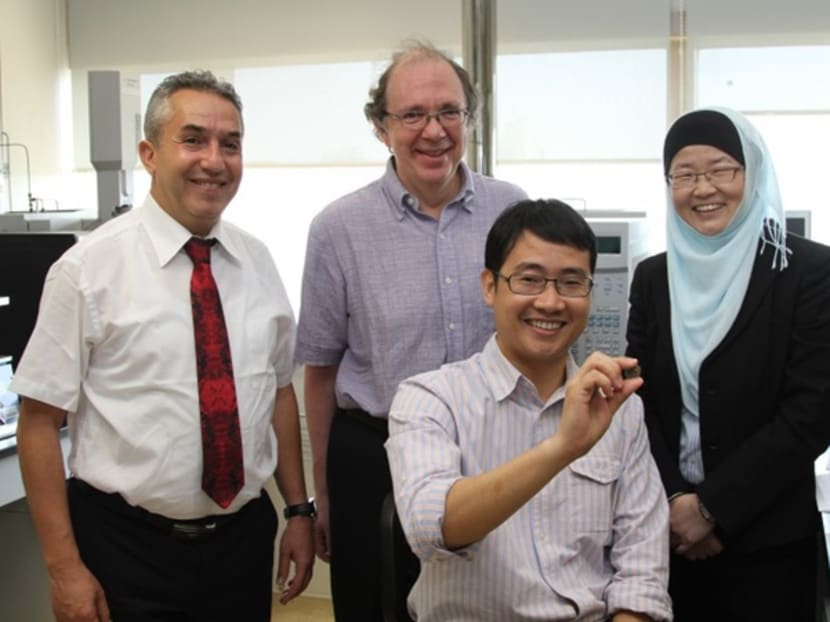Researchers achieve breakthrough for longer-lasting rechargeable batteries
SINGAPORE — A scientific breakthrough could result in longer-lasting rechargeable batteries for electric vehicles and mobile devices.

Researchers from Singapore's IBM of A*Star and Quebec's IREQ ( Hydro-Québec’s research institute) discover a breakthrough in rechargeable batteries. Photo: IBN and IREQ
SINGAPORE — A scientific breakthrough could result in longer-lasting rechargeable batteries for electric vehicles and mobile devices.
Researchers from Singapore’s Institute of Bioengineering and Nanotechnology (IBN) of A*STAR and Quebec’s IREQ (Hydro-Québec research institute) have synthesised silicate-based nanoboxes that could more than double the energy capacity of lithium-ion batteries as compared to conventional phosphate-based cathodes.
Lithium-ion batteries are widely used to power various electronic devices. This includes smart phones, medical devices and electric vehicles. Their high energy density, excellent durability and lightness make them a popular choice for energy change.
In order to address growing demands for long-lasting, rechargeable lithium-ion batteries, significant efforts have been devoted to improving their capacities. “There is a great interest in developing new compounds that may increase the energy storage capacity, stability and lifespan compared to conventional lithium phosphate batteries,” A*STAR and Hydro-Québec said in a statement today (Feb 25).
“IBN researchers have successfully achieved simultaneous control of the phase purity and nanostructure of Li2MnSiO4 for the first time,” said Professor Jackie Y Ying, IBN Executive Director. “This novel synthetic approach would allow us to move closer to attaining the ultrahigh theoretical capacity of silicate-based cathodes for battery applications.”
The five-year research collaboration between IBN and Hydro-Québec was established in 2011. The researchers plan to further enhance their new cathode materials to create high capacity lithium-ion batteries for commercialisation.






